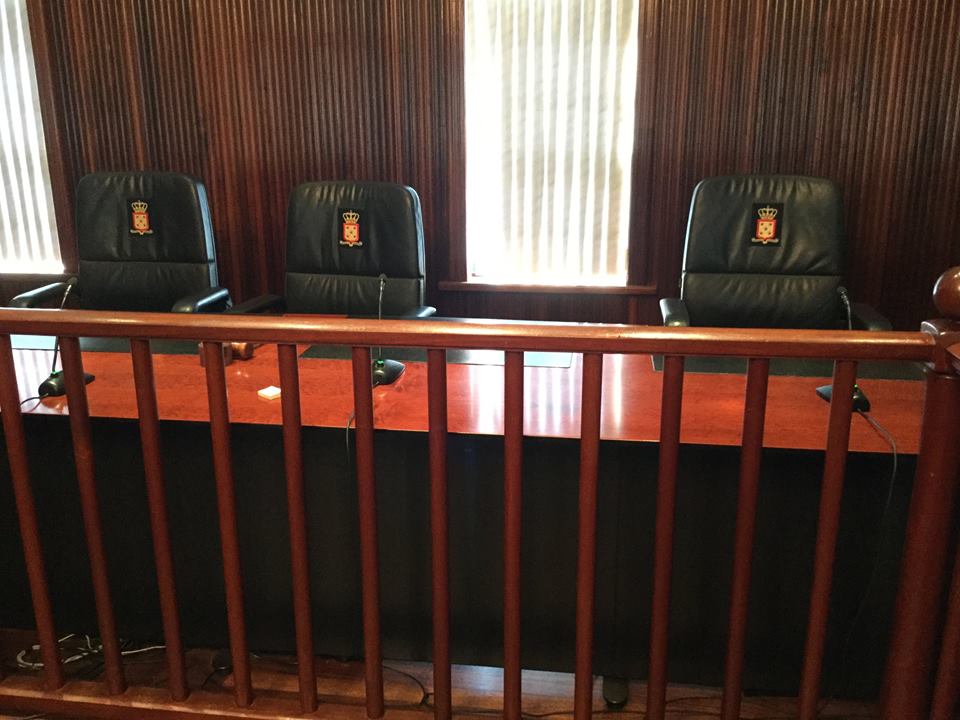Court snubs Pro Soualiga Foundation

PHILIPSBURG — The Pro Soualiga Foundation initiated a “completely redundant” lawsuit against the State of the Netherlands, the Court in First Instance ruled on Friday, adding that the foundation does not have any urgent interest in its demands against the Netherlands. The court declared the claims inadmissible and ordered Pro Soualiga to pay 1,500 guilders for the costs of the procedure.
Pro Soualiga, represented by the foundation’s board members Renate Brison and Denicio Brison, demanded in summary proceedings that the court order the Netherlands to provide the UN-resolution that states that article 73 of the UN-Charter can no longer be applied to the Netherlands.
The attorney for the Netherlands, Charles Rutte, admitted to the court what Pro Soualiga already knew (or should have known): such a resolution does not exist.
On February 15, 2021, the foundation asked the Dutch Minister of Foreign Affairs, Stef Blok, to provide such a document. Blok responded on March 15 by sending a copy of General Assembly Resolution 945 (X) 1955.
“Based on this resolution the United Nations has removed the (former) Netherlands Antilles from the UN-list of non-self-governing territories,” the minister wrote.
Job Vacancy: Law Firm Cor Merx Legal Services Seeking a Lawyer
Pro Soualiga was not satisfied with this response and asked Blok on March 21 again for the UN-resolution that states that article 73 of the UN-Charter can no longer be applied to the Netherlands. Because Blok did not reply, the foundation went to court, arguing that it wants clarity about the de-colonial status of the islands of the former Netherlands Antilles.
The court states in its ruling that the Netherlands could have called on the Par in parem non habet imperium-principle. The term is Latin for “equals have no sovereignty over each other”.
“It is incomprehensible why the State of the Netherlands would have to appear in front of the civil judge in the Court in First Instance in St. Maarten to give account for Acta jure imperii (acts by right of dominion),” the ruling states. “This does not affect the legal protection of private persons because litigants, like the Pro Soualiga Foundation, can present their possible claim on the State of the Netherlands for judgment to one of the courts in the Netherlands.”
There are no articles in the Kingdom Charter that offer arguments to think differently about state immunity and the immunity of the jurisdiction of the countries, the court notes, adding that other articles in the Charter offer provisions for handling disputes between the Kingdom and the countries and between the countries in the Kingdom.
The court concludes that countries can invoke immunity of jurisdiction for state actions within the context of the Kingdom. Because the state did not use immunity of jurisdiction as an argument in these proceedings, the court let this issue go.
The court ruled that the state had already complied with the demand by the Pro Soualiga Foundation before the hearing: “On March 15, the state sent Resolution 945 (X) in a timely manner to the foundation together with a link to all resolutions of the United Nations. Pro Soualiga could have convinced itself therefore that a different resolution about the de-colonial status of the islands of the former Netherlands Antilles is not available.”
Attorney Charles Rutte, who handled the case for the Netherlands confirmed during the court hearing that this is the case.
While this may sound to some like a victory for Pro Soualiga, the court had a different opinion: “The foundation’s subsidiary demand (that the state informs it in writing) therefore also falls on barren earth.”
The court declared Pro Soualiga inadmissible, but it did not stop there. It also pointed out that the court is not a political platform.
“The civil judge of the court is not the platform for (kingdom) politics but this is what Pro Soualiga is after. The ultimate goal of Pro Soualiga is to change the Kingdom Charter.”
(One of the foundation’s objectives is to remove the function of governor and to remove articles 44, 50 and 51 from the Kingdom Charter).
Article 44 regulates that changing the authorities of the governor requires approval from the kingdom government. Article 50 states that legislation and administrative measures that violate the Kingdom Charter can be suspended or voided on a recommendation by the Kingdom Council of Ministers. Article 51 gives the kingdom the option to issue an instruction if St. Maarten does not sufficiently provide what it is obliged to do based on the Charter, an international regulation, a kingdom law or a general measure of kingdom administration.
“Changing the Charter requires however following article 55 of the Charter,” the ruling states. (This article states that changes to the Charter must be based on kingdom law). “By promoting these changes the foundation enters the political arena. If the Pro Soualiga wishes to practice politics it could consider transforming the foundation into a political party. It is not up to the civil court to judge the lawfulness, appropriateness or expediency of these changes. That is up to the kingdom legislator. The civil judge of the court has no task and no authority in these matters and does not make itself available for discussions about them.”
In a footnote the court remarks that the Pro Soualiga Foundation “makes a habit of submitting similar claims against the State of the Netherlands to the civil judge in St. Maarten.”

























